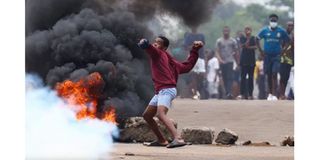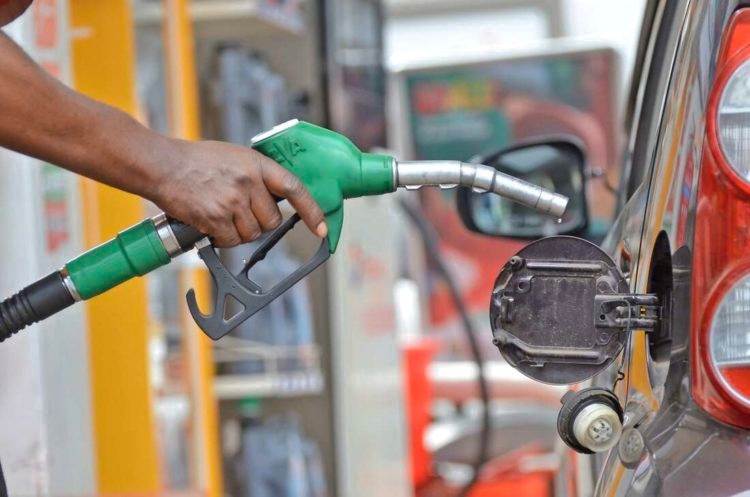Mozambicans have no faith in Constitutional Council solving post-poll crisis

What you need to know:
- Two weeks after the polls, the National Electoral Commission (CNE) announced that Daniel Chapo of the ruling Frelimo party the winner, with 71 percent of the votes. Frelimo won 195 of the 250 seats in parliament. According to the CNE, Chapo’s closest challenger, independent candidate Venâncio Mondlane, got 20 percent. Mondlane had claimed victory the day after the polls closed.
Mozambique's Constitution, like others, enshrines the sovereignty for the people. The interpretation of those powers often varies depending on whom you ask, but it mostly includes things such as voting in good leaders and rejecting bad ones.
Article 2 reads: “Sovereignty resides in the people. The Mozambican people exercise sovereignty in the manner laid down in the Constitution.”
The people exercise sovereignty through exercises such as direct and secret ballot, plebiscites, referendum and popular initiatives.
For Mozambique, it is difficult -- now -- to know whether the sovereignty of the people is respected and taken into consideration during elections.
Take the October 9 general election for instance. The European Union (EU), which sent its largest-ever election observation mission there, highlighted irregularities during counting, including “unjustified alteration of election results” at polling station and district levels.
The International Republican Institute echoed EU observations saying, “The Mozambican election was marred by widespread irregularities that raise serious questions about its legitimacy.”
Two weeks after the polls, the National Electoral Commission (CNE) announced that Daniel Chapo of the ruling Frelimo party the winner, with 71 percent of the votes. Frelimo won 195 of the 250 seats in parliament. According to the CNE, Chapo’s closest challenger, independent candidate Venâncio Mondlane, got 20 percent. Mondlane had claimed victory the day after the polls closed.
The Africa Centre for Strategic Studies said Frelimo’s “brazenness to engineer lopsided electoral outcomes apparently reflects its sense of entitlement to rule Mozambique in perpetuity.”
Frelimo has governed Mozambique since its independence from Portugal in 1975 and has the state machinery in its corner.
The opposition Podemos (Optimistic People for the Development of Mozambique), which backed Mondlane for president, got 31 seats and Renamo secured 20 seats. The electoral body said that Frelimo won all the provincial elections.
Chapo will be sworn into office in January, but the Constitutional Council has to validate the polls results first. This is expected on or around December 23.
Since the results were announcement by the CNE, the country has descended into chaos after Mr Mondlane and his supporters, and Renamo rejected them.
On December 15, Plataforma Eleitoral Decide (Decide Electoral Platform), an NGO that monitors the electoral processes in Mozambique, said that least 130 people had died in the post-election demonstrations from October 21. It added that 385 people had been shot, 3,636 arrested, and five disappeared. More than 2,000 others have been injured during demonstrations.
The country’s civil society is demanding change. On December 14, musicians, visual artistes, writers and other personalities shared the stage in Maputo against the social crisis in the country and said that the people have to be heard.
Aunício da Silva, Mozambican editor of the newspaper, Ikweli, argues that elections are no longer the means by which power is given in Mozambique.
“At this difficult time in Mozambique. We should stop and ask ourselves what the people want,” Mr da Silva adds.
The diplomatic corps in Maputo have begun expressing their concerns about the crisis.
“You should prepare for significant disruption and unrest across Mozambique from the week of the 16th of December preceding and in the weeks following the announcement,” the UK warned its citizens in the African country.
According to the British Foreign Commonwealth & Development Office (FCDO) protests and demonstrations continue to occur at short notice across Mozambique.
“These can be unpredictable, and even peaceful protests may turn violent with casualties. Roads and border crossings can be restricted, blocked or closed at short notice,” the FCDO said.
Zenaida Machado, senior researcher at Human Rights Watch Africa, asked the police to follow the law in quelling the chaos, otherwise, she warned, public trust in state security institutions could be further diluted.
At a press conference on December 14, Podemos spokesperson Dinis Tivane said that the work done by the Constitutional Court will not bring electoral truth.
The Court’s head Lúcia Ribeiro has asserted that the protests will not influence the body’s final decision.




